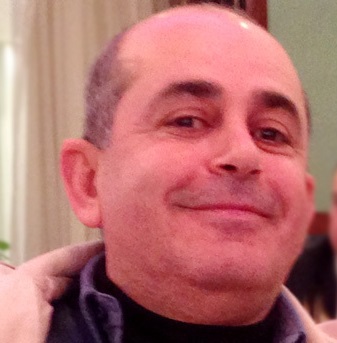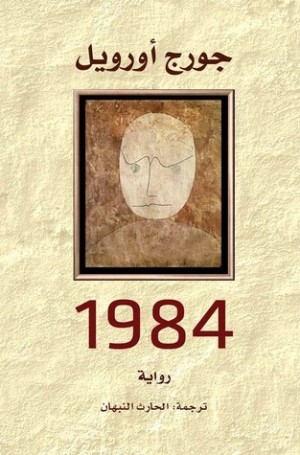Hareth Nabhan (Alhareth Alnabhan) is a Syrian translator living in Bulgaria. He was born in Damascus in 1961. It is thanks to him that Arab readers are able to read works of global significance like George Orwell’s 1984 and Noam Chomsky’s Year 501: the conquest continues.
Al-Nabhan first took an interest in English at school, though he studied mechanics at university. But his studies were cut short when he was thrown in jail for political reasons and spent 14 whole years there. Paradoxically this was to play a crucial role in his life as translator. It was while he was in prison that he set down to working with English in earnest. Together with two other men, he decided to devote 7-8 hours a day to the study of the language. Their teacher was another political prisoner – Ali Shihabi a teacher of English at a UN school for Palestinian refugees. Gradually Al-Nabhan’s confidence grew and he turned to the English-language books in the prison library. In just two years the mechanical engineer had read over 80 original works in the English language which opened his mind to the world and developed his literary taste.
1991 was the year when Al-Nabhan made his first attempt at translation. That was when a friend asked his help for a translation. He translated the whole text all by himself with very good results. Then he got down to translating Year 501: the conquest continues which took him close to 100 days. He managed to smuggle the book out to his family and they published it under the name of his sister May Al-Nabhan. It was an instant success. But later the translator was thrown into Palmyra jail; conditions there were much harsher and precluded creative work of any kind. In 1998 Al-Nabhan was released and after some hesitation started work as a professional translator – first of non-fiction though later he turned to fiction.
“Books may not be so lucrative but they are important as they make a difference. The book has your name on it so you leave a mark,” he says.
For more than 10 years Al-Nabhan’s work has been entirely devoted to translation. The books he has translated into Arabic include: Eric Hobsbawm’s The invention of tradition, Ivan Klíma’s Love and garbage, Stephanie Meyer’s Twilight.
To the question how phrases connected with a specific way of life, culture or other terminology can best be translated Hareth Al-Nabhan answers:
“A translator does not always have to say things so they are understandable to all. Readers must not be lazy and when they see there is something they do not understand they should make an effort to find out about it. But the selection must be made very carefully, so as to keep readers interested.”
As Hareth Al-Nabhan puts it, translation is a way to mediate between cultures and a means to develop a taste in readers. And it is in this that the enormous responsibility of a translator lies.





